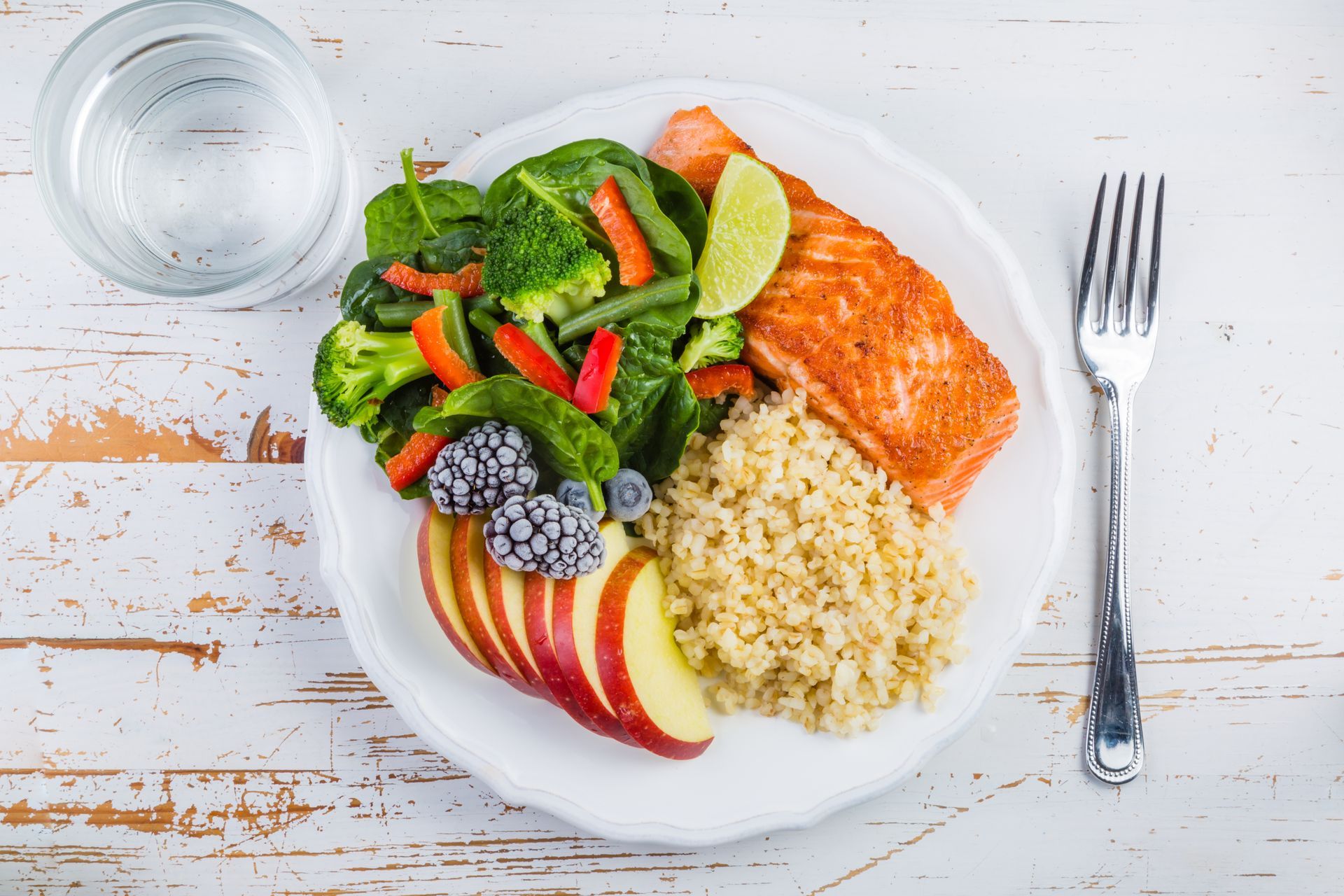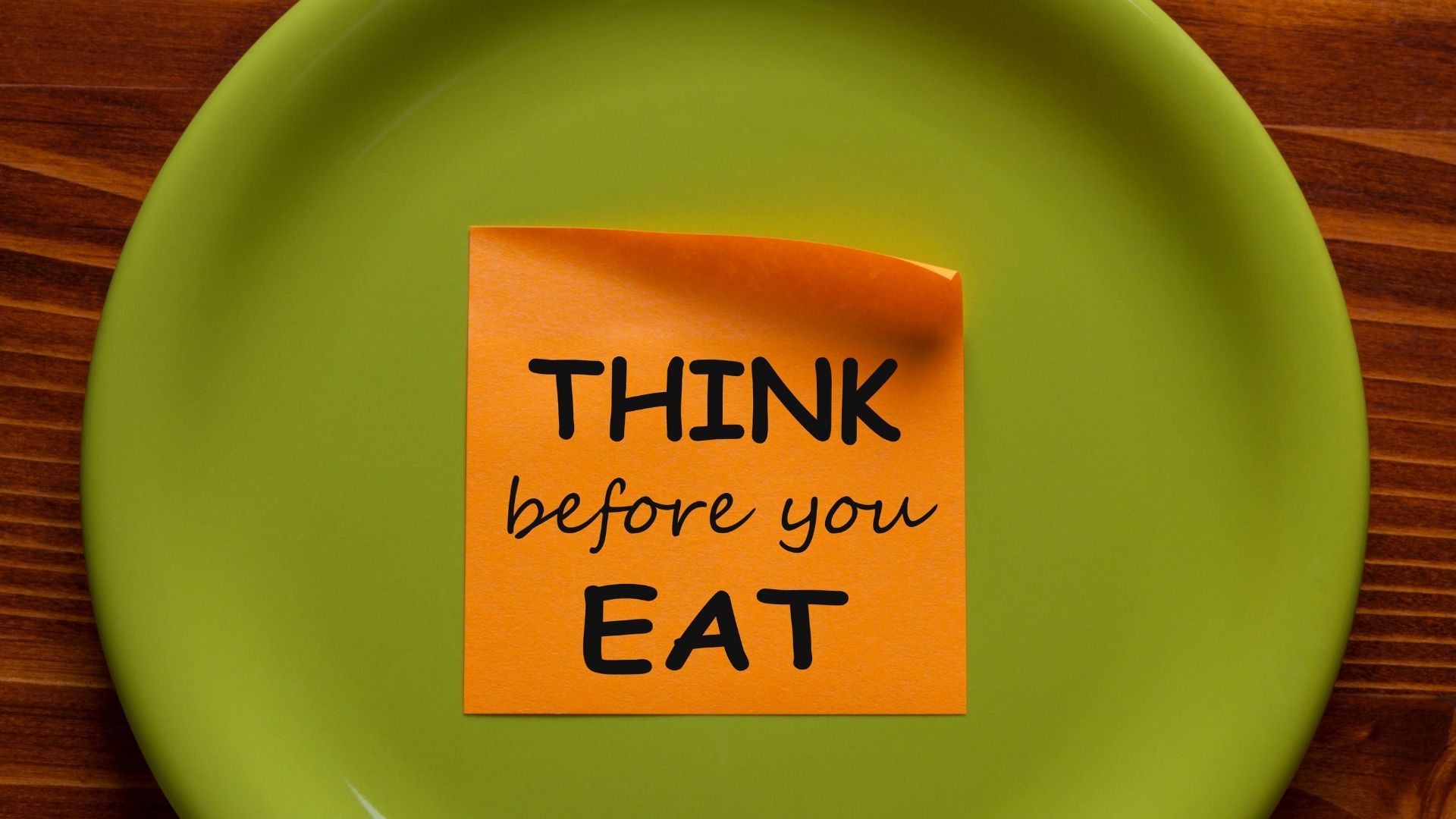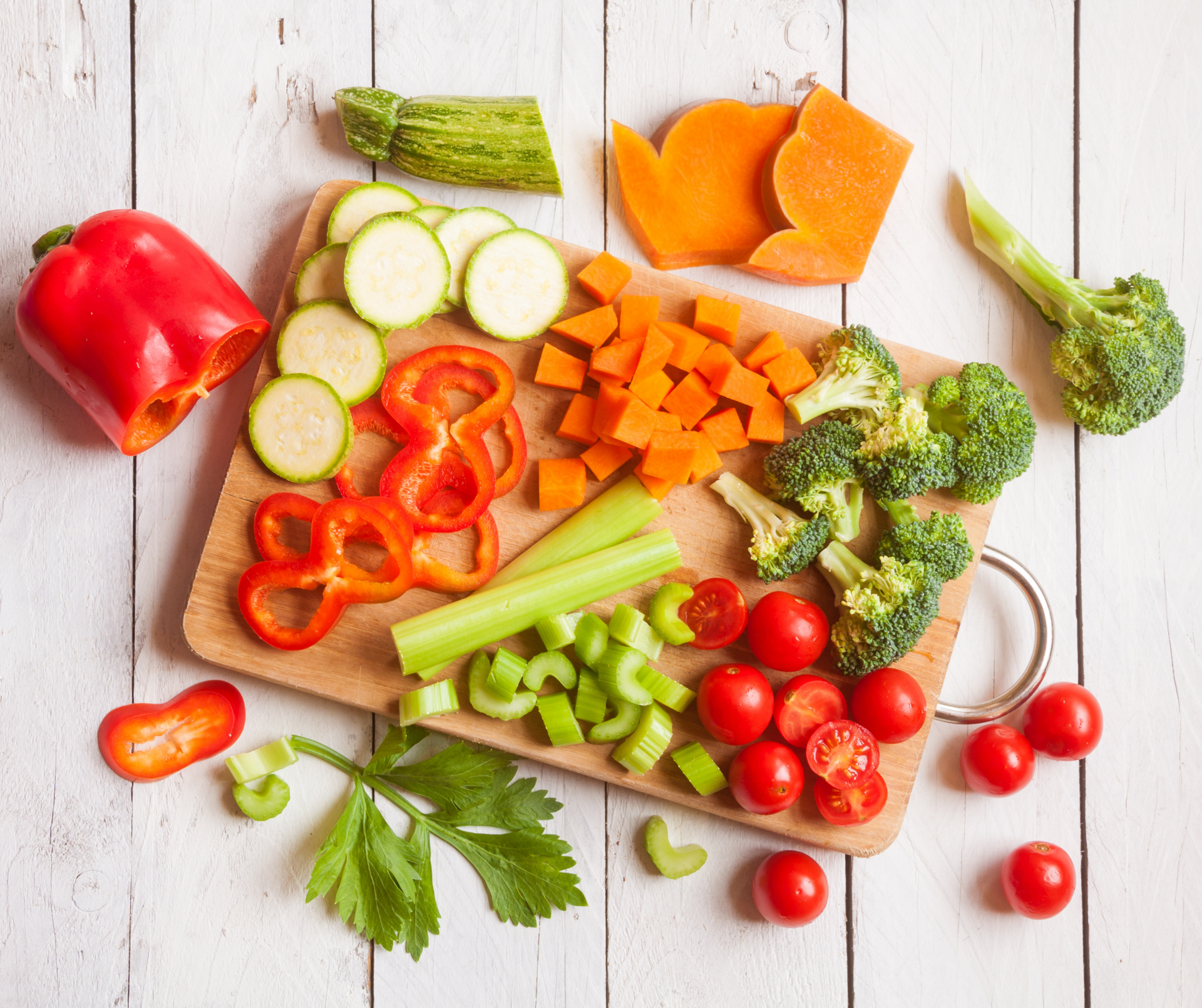Ways to Tackle Weight Gain at Midlife
Have you been dieting but not getting the results you expected? Normal age-related changes to your body, such as loss of muscle, normal hormonal changes, and stress may be sabotaging your efforts.
Here are a few evidence-based tactics to help you successfully control your weight.
1. Focus on Healthy Foods
Increasing your vegetable and fruit intake while simultaneously decreasing the amount of fast food, added sugar, and other processed foods you consume will help you control your weight. Go slowly with this change, increasing the amount of vegetables by a ¼ cup every month while decreasing the grain and protein on your plate by the same amount. An adult woman should aim to eat at least 2.5 cups of vegetables a day and an adult man should aim to eat at least 3 cups of vegetables a day. Fruits and vegetables have a lot of water, which take up room in the stomach, increase satiety, and generally have fewer calories.
2. Decrease Your Portions
Decreasing calorie intake should be a slow process to allow your body time to adjust. Some tricks to reduce meal portions include drinking water right before your meal and eating off of a plate that is about 2 inches smaller. Using a calorie counting app is a scientifically-proven way to monitor your food intake and to ensure reduced portions.
3. Stay Well Hydrated- With Water
It’s easy to confuse the sensation of thirst for hunger. Stay hydrated with PLAIN water (rather than with calorie-rich beverages like sodas, fancy coffee drinks, and fruit juices). Avoiding alcohol, which is high in calories and low in nutritional value, can make a huge difference too.
4. Find Solutions to Reduce Your Stress Level
For many people, stress leads to emotional eating. In addition, stress increases a hormone called cortisol, which can lead to weight gain. There are hundreds of ways to decompress throughout the day, so experiment to see what works for you. Some ideas include dancing, listening to relaxing music, yoga, spending time outdoors, and short 5-minute meditations to be done multiple times throughout the day.
5. Strengthen Your Muscles
As we age, a natural progression is that we lose muscle; however, muscle is needed to burn calories. Therefore, to increase your metabolism, work on increasing your muscle mass. The Department of Health and Human Services’ 2018 Physical Activity Guidelines for Americans recommends that adults get at least 2-3 days a week of weight training exercises to strengthen bones and muscles. A good place to start is with the National Institute on Aging’s easy at-home strengthening Go4Life exercise program.
6. Get Physical!
Don’t have a lot of time to exercise? Newer studies are showing that just 20 minutes a day of intensive physical activity can improve your risk of heart disease. Intensive activity means that you are out of breath but still able to talk comfortably. Examples include brisk walking, swimming, jogging, dancing, and spinning. Exercise is important for weight loss and weight maintenance; however, changing your diet will impact your weight much more than exercising.
7. Get a Good Night’s Sleep
We are just becoming aware of the importance of sleep- and there is a reason that 1/3 of our lives should be spent sleeping! Sleep helps to balance hormone levels, which can cause weight gain if they are out of balance. Studies show that a good night’s sleep (7-8 hours/night for adults) is needed for successful weight management.











